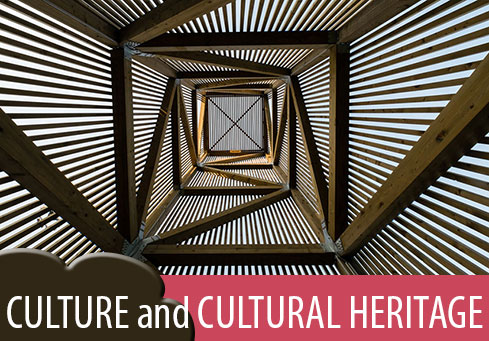Covid-19 - How to explore art and culture and heritage of Europe from home

And once the working day is over, we probably have free time to fill at home – free time that can be filled with cultural activities. While nothing can replace the intense experience of a live orchestral concert, or the unique encounter with art in museums and galleries, thanks to the increasingly available digital platforms, art is just a click away. And there is much evidence to show that art and culture contribute to our wellbeing, serenity, inspiration, intellectual stimulation and resilience in facing challenges.
It is therefore with great pleasure that the Culture and Cultural Heritage Division have prepared a list of activities and places you can visit, without leaving the comfort of your own home.
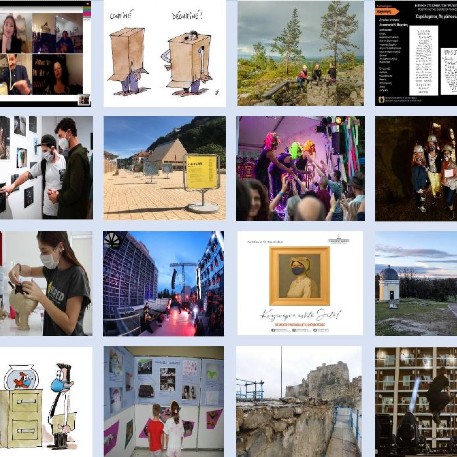
Culture in times of Covid-19 or how we discovered we cannot live without culture and creativity: Impressions and lessons learnt from Covid-19
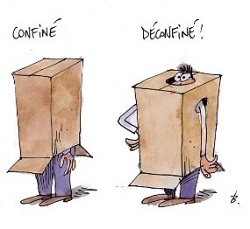
Download the Collection: Culture in times of Covid-19 or how we discovered we cannot live without culture and creativity: Impressions and lessons learnt from Covid-19

Visit museums, galleries, listen to concerts all around Europe
Trying to help their visitors in this unprecedented situation, museums, galleries, and all kinds of different performers around the world are united in overcoming the challenges presented by isolation. They are offering tours, performances and other kinds of virtual experiences.
Here is a non-exhaustive list of museums, galleries and music places in Europe that you can visit online:
- Travel through time in the British Museum, London
- Discover the wonders of Florence's famous museum, Uffizi Gallery.
- And the wonders of Egypt in the Egyptian Museum of Barcelona.
- Explore 278 pieces of extraordinary art in the Musée d’Orsay, Paris
- Take the opportunity to see The State Hermitage Museum in Sankt-Peterburg, Russia
- Use Google Street Views to find Banksy Murals.
- Always wanted to visit the Berlin Philharmonic? The Digital Concert Hall is now open to everyone for a limited time!
- For opera lovers, the Vienna State Opera is streaming some of its latest performances.
- Visit BOZAR, the Centre for Fine Arts in Brussels, and enjoy beautiful and inspiring moments of music, exhibitions, theatre, film, dance, lectures and debates – plus many more artistic expressions.
- And let us not forget the Montreux Jazz Festival
For more events that are happening all over the world, participate in the Social Distancing Festival. This is an online artists' community to celebrate and showcase the work of the many artists around the world who have been affected by the need for social distancing.
From Bono, John Legend and numerous other musicians livestreaming their performances, to anonymous artists demonstrating their skills through Instagram or Facebook> what is your favourite so far?
Send us more suggestions/links so that we can add them to the list.

Explore European Heritage Days ideas during isolation
In 2019, European Heritage Days celebrated the shared theme of Arts and Entertainment in most of the 50 participating countries, and we encourage you to explore the 101 event ideas again, as many of them can be organised indoors or as an online event.
The newest edition of 101 Event Ideas is focused on Heritage and Education, which is this year’s shared theme under the slogan Heritage and Education: Learning for Life! Inside, you will find a variety of activities for all ages, with a special section of activities for children. For help adapting these events to the indoors, make sure you follow us on social media, as we will be providing ideas daily: Facebook, Twitter and Instagram. And to learn more about the work of the European Heritage Days coordinators and shared European heritage, watch the Youtube video.
We also invite you to check the recommendations of your national and local EHD organisers, as they are working hard to adapt their programmes to the new situation.
On the European Heritage Days website you can also read the European Heritage Days Stories from organisers of EHD events. Check the works of young European Heritage Makers and you will discover how the youngest members of communities experience shared European heritage.
Intangible cultural heritage can be explored all over the world through the UNESCO website which presents more than 500 living heritage elements in 127 countries in the UNESCO lists of intangible cultural heritage through videos, photos and texts.
National inventories of living heritage can be found online from all over the world. These inventories can be found from the Map of e-inventories by the Digital ICH Observatory
One example of such online resources is the Wiki-inventory of Living Heritage that gives 175 examples of living heritage elements in Finland as presented by 250 different communities.
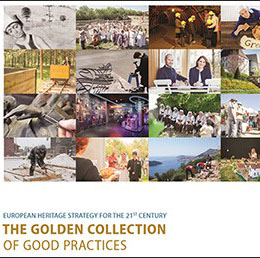
Read a book
Want to learn about impactful heritage initiatives in Europe, that can serve as models and inspiration for work in your own neighbourhood, city, institution, association?
Here is Strategy 21’s Golden collection of 32 good practices in Europe in English and in French.
As preparing meals is back in our homes as a main family activity, learn about your country’s culinary culture, or about the history and meaning of cuisine in Europe. This award-winning book published by the Council of Europe some years ago, can still be inspiring - Culinary Culture of Europe – Identity, Diversity and Dialogue: In English / In French
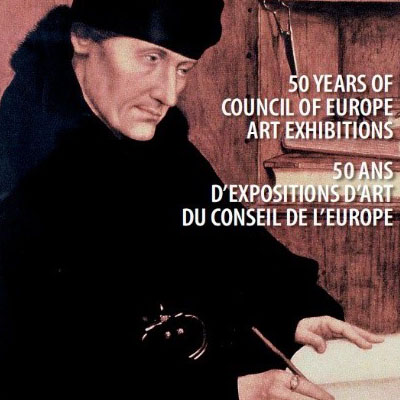
Interested in the Council of Europe Art Exhibitions?
In the past, the series of art exhibitions was conceived from the outset as a public reminder of the splendours of the artistic heritage shared by all Europeans. The 50th anniversary of the opening of the European Cultural Convention was an opportunity to present this grand series via the posters and brief description of each of the exhibitions.
Link to the catalogue presenting “50 years of Council of Europe art exhibitions” (free download).
The 30th art exhibition "The Desire for Freedom: Art in Europe since 1945” (2012-15) featured 180 artworks from 36 countries on the subject of freedom and its implementation since 1945.
“A vibrant, democratic society needs not only active citizens, but also, and in particular, artists who articulate the freedom that is its hallmark. Art nurtures Europe’s cultural diversity, as well as our common heritage. Freedom of art is essential to any evolving democracy and an important measure of its maturity – whether in Europe or beyond”.[1] The exhibition can be discovered through its catalogue, offering artistic encounters with the great conceptual instances of Reason and History, and with the basic questions about our social existence: How do individuals desire to live? Where do they turn for orientation? What responsibility do politics, government and society bear on securing a humane existence? (digital catalogue will be made available soon)
[1]. The Desire for Freedom – Catalogue, p. 9, Opening Remarks by Guido Westerwelle, Federal Foreign Minister of Germany
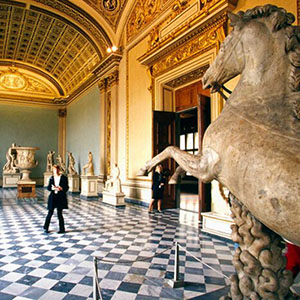
Other Quarantine Culture Tips
Our longstanding co-operation partner, the European Cultural Foundation in Amsterdam also invites their website visitors to participate in culture: "We may need to stay inside and limit our live social contacts, but we can still expand our world and use our imagination in other ways. To get you through quarantine we curated European cultural picks by our staff".
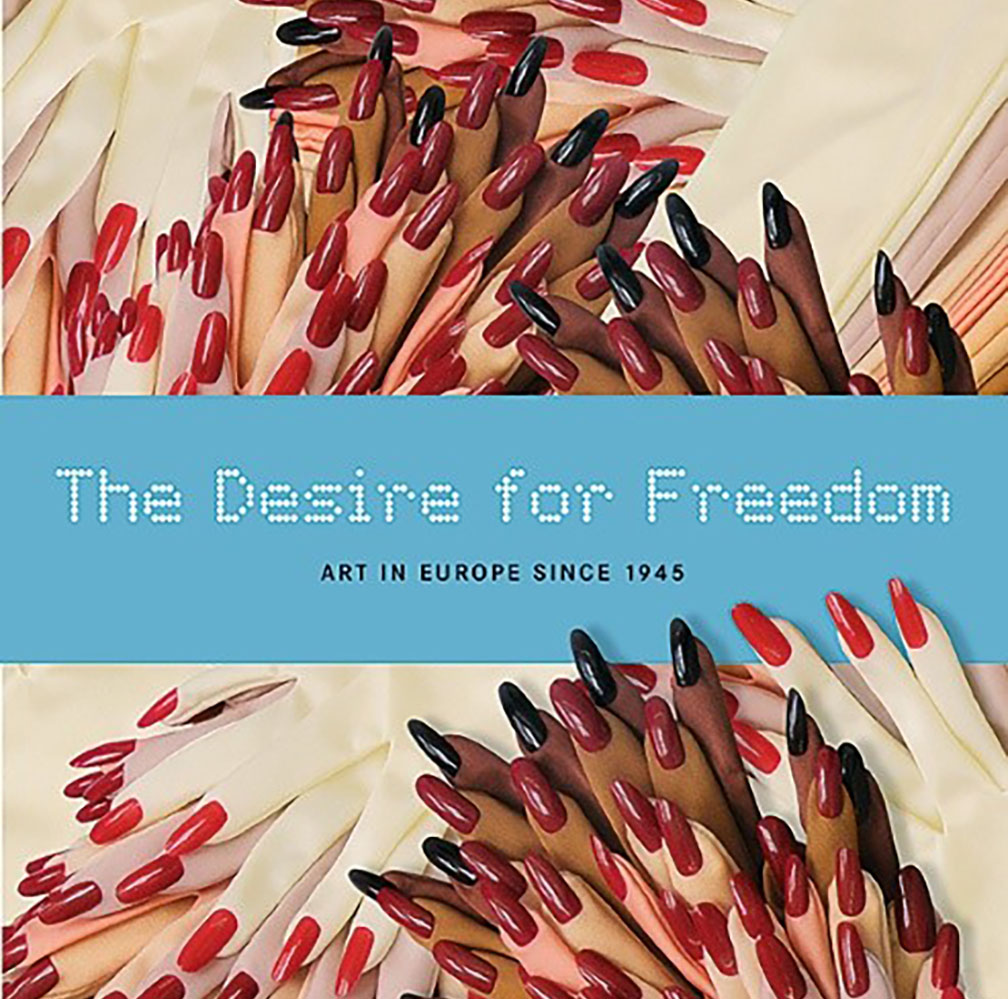
Get ready for the special occasion
Before you start meandering through the virtual world of cultural heritage, do not forget to prepare the atmosphere!
To make the experience authentic, you could prepare as if you were about to make a real visit. Start by booking an exact date and time, and even pick what to wear for the special occasion. After all, it is part of the preparation ceremony! Do not forget to invite your friends online or if you prefer family time with your closest ones, organise a gathering on the sofa this weekend. When the time comes, remind everyone to put their phones on silent mode before starting your visit.
Covid-19 and cultural policies in Europe
The Compendium of Cultural Policies and Trends - a Council of Europe/ERICarts initiative from 1997 that is meanwhile operating as an independent Association- monitors current developments regarding COVID-19 and the cultural sector.
The Compendium Association mobilised its expert authors to gather country-specific information on the implications for the sector and the current measures being taken in member States. The reports are presented in a dedicated section of culturalpolicies.net, which is being updated regularly.



